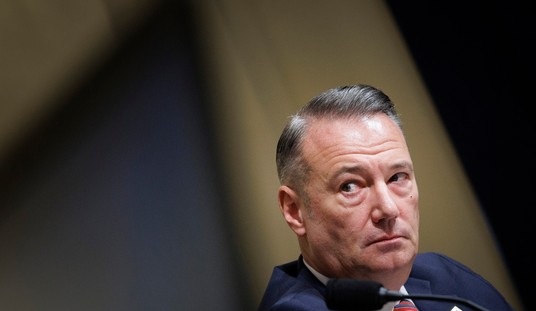The Dutch and the Canadians are in a race to see which country can come up with the most excuses for killing their citizens.
With the Canadians putting off their move to kill people with mental illness for a while, the Dutch are rushing into the lead. Perhaps, though, the Canadians will respond by making death a treatment for acne.
JUST IN: 29-year-old Dutch woman who is perfectly healthy has been granted to k*ll herself by assisted su*cide.
— Collin Rugg (@CollinRugg) May 17, 2024
Insane.
Zoraya ter Beek will soon be dead after officials in the Netherlands granted her request to take her own life.
Ter Beek has been wanting to take her own life… pic.twitter.com/gLLwVFMDOM
Suicide hotlines will remain a thing, but they will transition from suicide prevention to suicide scheduling.
"I need help. I am thinking of killing myself."
"Sure, when would you like the 'doctor' to stop by, and do you have a preference for what drug we use?"
It's insane. And I say this as a person with deep personal experience with suicidal ideation. Bipolar depression runs through my family, and I know a thing or two about this matter.
Treating depression is hard. Really hard. Finding the right combination of drugs and therapy is something akin to alchemy. It's not at all like using Augmentin to treat strep throat.
But depression is treatable, and even the right kind of support makes a huge difference. New treatments like Ketamine can help people, and electroconvulsive therapy can work wonders.
Death works, too, if you don't care about life or health. It has a 100% success rate in curing suffering. The side effects suck, though.
Why do so few people note the obvious: treating people with chronic diseases costs a lot more than killing them off, and that is why these countries are rushing headlong into the practice of offing expensive patients. It's not hard to see this.
It's not disputed that suggesting suicide to people as a path to relief increases the likelihood that people will, in fact, kill themselves. It's pretty simple: people who are affirmed in their desire to die are more likely to choose that path; people who are discouraged are less likely. This is true for anything, really. If somebody eggs you on, chances are greater that you will do something.
The Death with Dignity movement had an argument behind it when talking about end-of-life decisions. As a Catholic, it's not an option, but I fully understand why somebody on the edge of death might want to go out on their own terms, especially when they are facing a future that promises nothing but pain or humiliation.
We are well past discussing this, and that is why those of us who worry about slippery slopes have argued against legalizing assisted suicide. Opening the door an inch inevitably means opening it all the way. Logically that may not be so, but politically it does. Slippery slope arguments are almost always right.
Winston Churchill was famously dogged by depression, although there is some dispute regarding whether he suffered from clinical depression, his own testimony suggested he did. It is certainly the case that many highly accomplished people have persevered and overcome mental illness. Van Gogh was indisputably mentally ill, and few people would argue that his life was so worthless that he should have been snuffed out.
Telling people that they can't continue living with a condition almost guarantees that they can't. It is the work of people who teach antiresilience, which is the dominant movement in our education system today. We teach people to be fragile, not resilient, and to embrace "who they are" rather than who they have the potential to be.
It's appalling. Antihuman. As Saint John Paul II said, it is a reflection of a culture of death.
One of the most powerful political movements today is the insistence on the right to murder the unborn. Another is the movement to sterilize children. Yet another is to shut down farms to protect Gaia. I could go on, but you get the point.
It is the fetishization of death. A disgust with humanity.
Not so long ago, our popular culture associated assisted suicide with dystopias. Soylent Green and Logan's Run come to mind.
Now, we have Canadian clothing stores distributing movies celebrating the suicide of a woman who was not terminally ill. In fact, she revealed in an interview (she originally hid her identity) that she wouldn't have chosen death but for the fact that Canada's "free" healthcare system refused to treat her disease because it didn't have the right specialists.
In Canada, veterans with PTSD had suicide presented as a quick option to heal their pain, and a Paralympian was offered suicide as an alternative to the state providing her a stairlift.
These aren't welfare states; they are deathcare states.








Join the conversation as a VIP Member